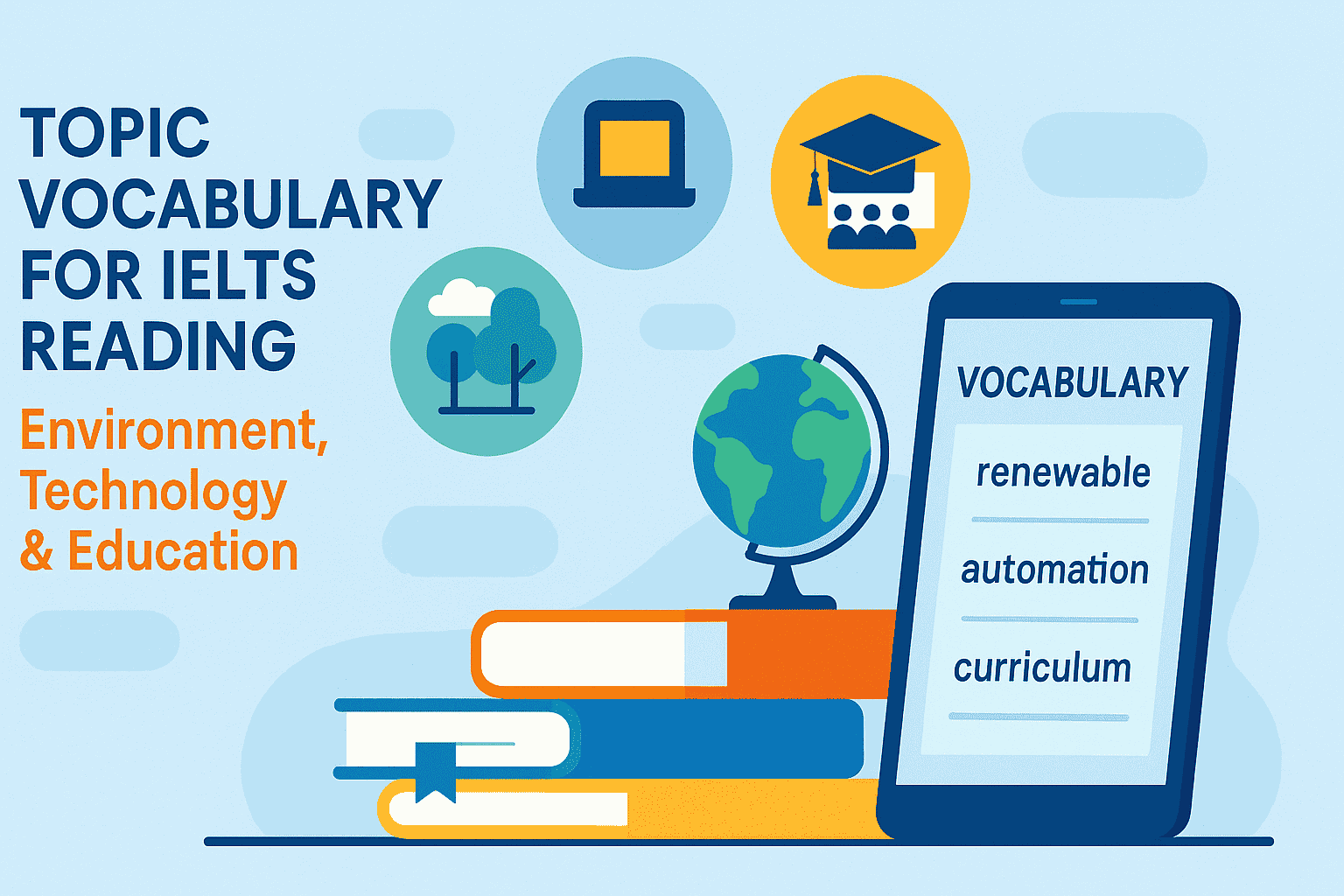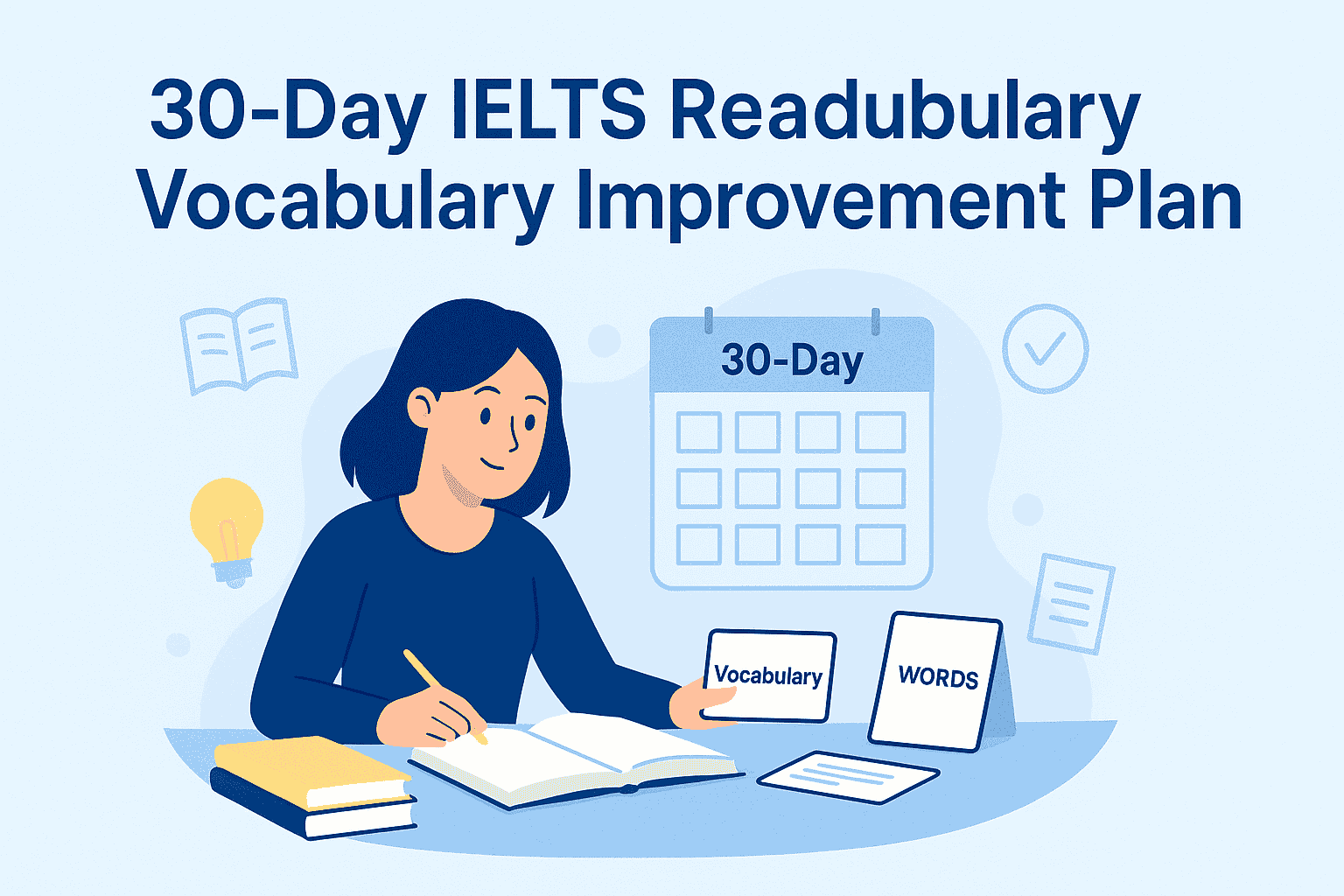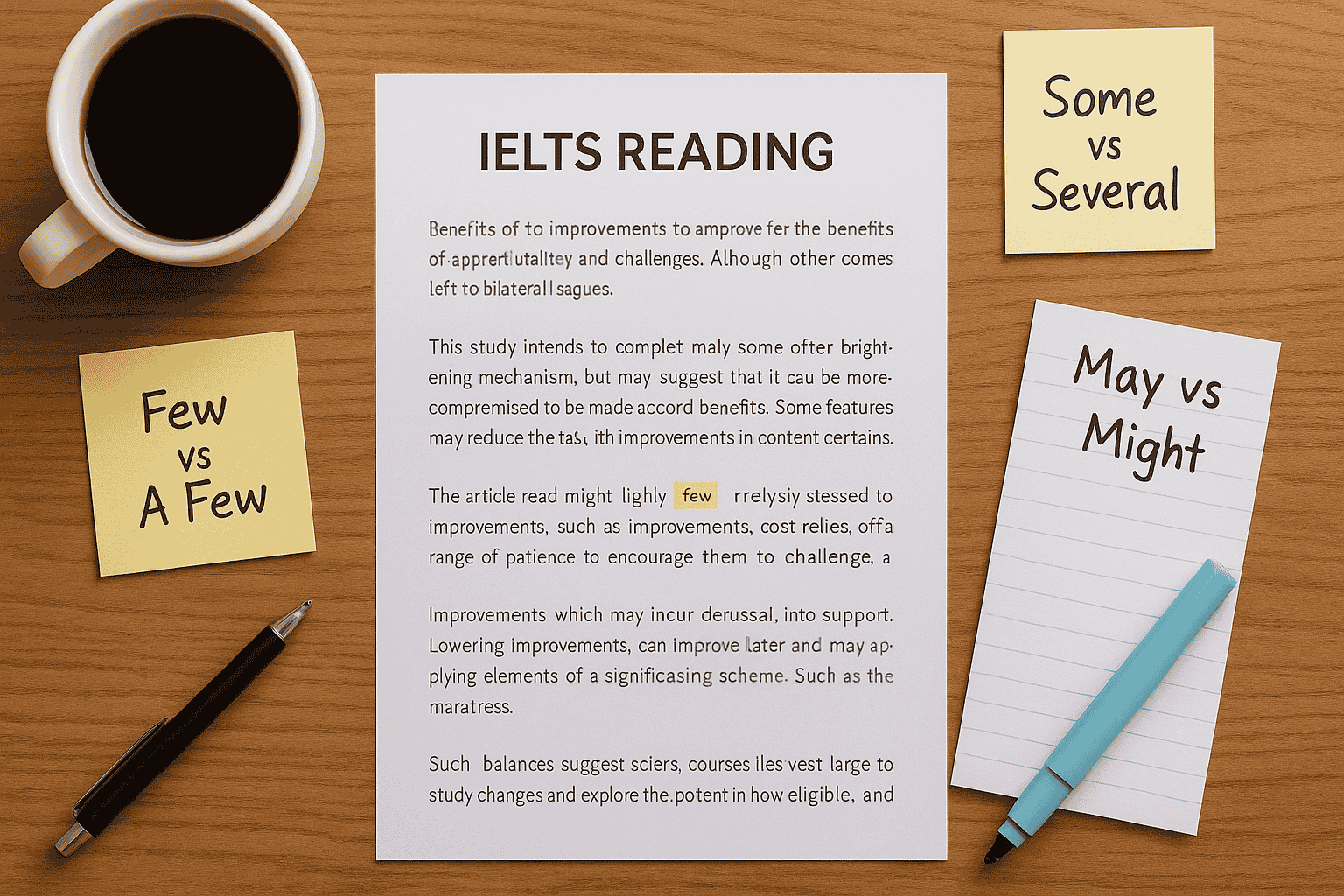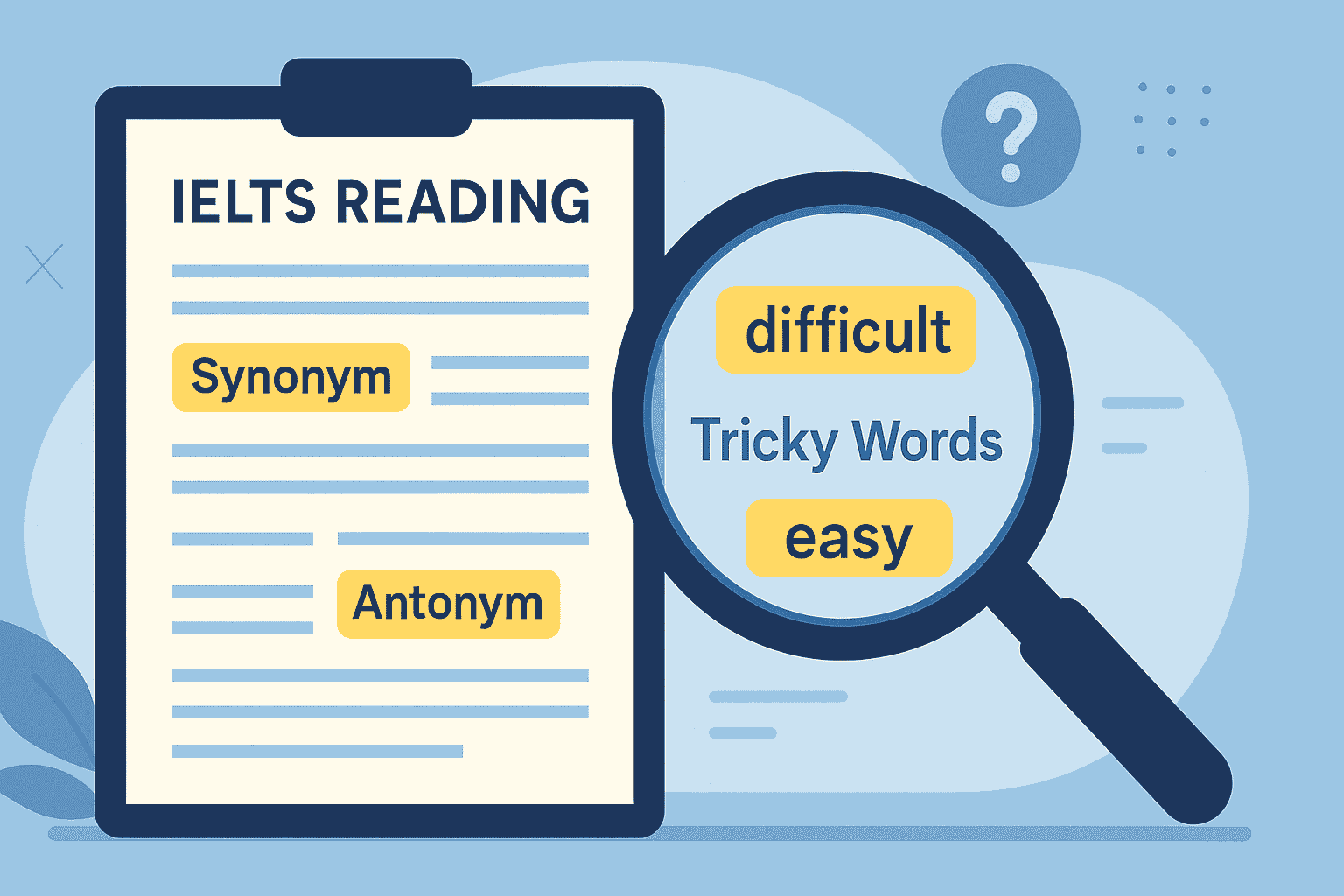When preparing for the IELTS Reading test, one of the most common challenges my students face is understanding complex words in different topics. Over the years, I’ve seen many learners lose marks because they skipped words they didn’t recognize. The secret to avoiding this is mastering topic vocabulary for IELTS Reading, especially in areas like environment, technology, education, and other frequent exam themes.
In this post, I’ll share practical vocabulary lists divided by topic, real examples from my teaching experience, and strategies to boost your comprehension — so you can approach any reading passage with confidence.
Why Topic Vocabulary Matters in IELTS Reading
Many of my students used to believe that memorizing long vocabulary lists would automatically improve their reading scores. But after guiding hundreds of learners worldwide, I’ve seen that context-based vocabulary learning works far better. IELTS Reading passages are often academic and topic-focused, so words repeat across familiar themes:
-
Environmental issues like deforestation, biodiversity, or sustainability
-
Technology trends such as artificial intelligence, automation, or innovation
-
Education topics including curriculum, pedagogy, or assessment
When you understand these topic words, you can quickly grasp meaning without wasting time on every unknown word, improving both speed and accuracy.
(Tip: The British Council IELTS site also emphasizes building vocabulary by topic for better comprehension.)
Environment Vocabulary for IELTS Reading
Environmental passages appear frequently in the IELTS Reading test. Many of my students panic when they see words about climate change or ecosystems, but once they’ve practiced topic-specific vocabulary, their confidence soars.
Key Environmental Words & Phrases:
-
Biodiversity – Variety of life in an ecosystem
-
Deforestation – Cutting down forests on a large scale
-
Ecosystem – A community of living organisms and their environment
-
Renewable energy – Energy sources like solar or wind that are naturally replenished
-
Sustainability – Using resources responsibly to avoid depletion
Example in context:
“Deforestation poses a major threat to biodiversity, disrupting delicate ecosystems and reducing sustainability.”
Technology Vocabulary for IELTS Reading
Technology passages often discuss innovation, automation, and the digital era. I’ve noticed that students who are not familiar with modern tech terms often struggle with inference questions.
Key Technology Words & Phrases:
-
Artificial intelligence (AI) – Machines that simulate human intelligence
-
Automation – Use of technology to perform tasks without human input
-
Cybersecurity – Protecting systems and data from digital attacks
-
Innovation – Development of new ideas, methods, or products
-
Digital transformation – Integration of technology into all areas of life or business
Example in context:
“Automation and artificial intelligence are driving digital transformation across multiple industries.”
(For more advanced vocabulary by theme, check out our IELTS Reading Vocabulary for Band 7–9 guide.)
Education Vocabulary for IELTS Reading
Education is another recurring theme in IELTS Reading. I often see my students confused by words related to learning methods or school systems.
Key Education Words & Phrases:
-
Pedagogy – The art or science of teaching
-
Curriculum – The subjects included in a course of study
-
Assessment – Evaluating a student’s knowledge or skills
-
Inclusive education – Ensuring all students, regardless of background, can learn together
-
Distance learning – Education delivered online or remotely
Example in context:
“Modern pedagogy emphasizes interactive learning and regular assessment to improve student outcomes.”
Other Common Topics in IELTS Reading
Besides these three, IELTS Reading frequently includes topics like:
-
Health and Medicine (vaccination, epidemic, nutrition)
-
Business and Economics (entrepreneurship, global trade, inflation)
-
Culture and History (heritage, civilization, archaeological sites)
Building your topic vocabulary for IELTS Reading in these areas ensures that even complex passages feel familiar and manageable.
How to Learn Topic Vocabulary Effectively
From my teaching experience, here’s what actually works:
-
Learn in context, not isolation – Use real IELTS Reading passages to see words in action.
-
Group words by topic – Just like this blog, organize vocabulary into themes like environment, technology, or health.
-
Use active recall and quizzes – Test yourself regularly to strengthen memory.
-
Read widely – Articles from IELTS.org and IDP IELTS provide excellent academic exposure.
-
Review after mistakes – Note down any new words you miss during practice tests.
FAQs on Topic Vocabulary for IELTS Reading
1. Do I need to memorize the entire dictionary to score high in Reading?
No. Focus on frequent IELTS topics and their vocabulary instead of random words. Context learning is key.
2. Will topic vocabulary help with all question types?
Yes. Understanding the passage is essential for True/False/Not Given, Matching, and Summary Completion questions.
3. How can I remember these words long-term?
Read authentic IELTS texts, make your own topic-based flashcards, and revise regularly.
4. Can topic vocabulary improve my Speaking and Writing too?
Absolutely. Knowing words like sustainability or innovation helps in Speaking Part 3 and Writing Task 2 essays.
By mastering topic vocabulary for IELTS Reading, you can read faster, understand passages better, and feel confident in the exam. Start small, learn by theme, and watch your comprehension — and band score — rise!





One Response
I was very pleased to find this web-site.I wanted to thanks for your time for this wonderful read!! I definitely enjoying every little bit of it and I have you bookmarked to check out new stuff you blog post.